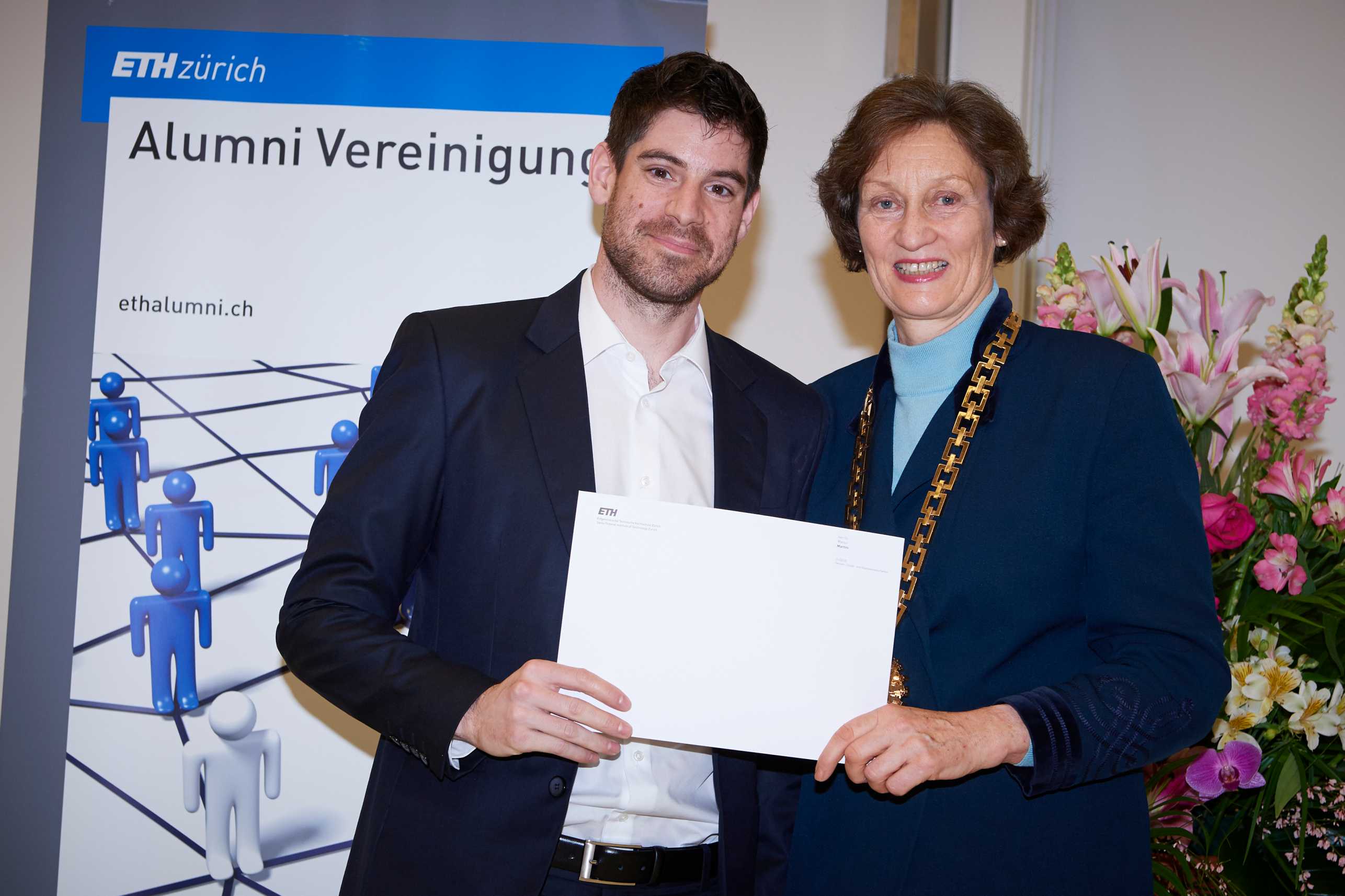Marco Martini received the ETH Medal for his doctoral thesis
On 18 January 2019, Marco Martini was awarded the ETH Medal for his doctoral thesis on "The Logic of Escalation. Investigating the Role of Stakes in Trade Disputes as a Lens to Conflict Processes". Marco is currently working as a Postdoc at Princeton University.

Marco Martini was awarded the ETH Medal for his doctoral thesis on 18 January 2019. This medal honours outstanding doctoral theses. It is endowed with prize money.
Marco Martini's doctoral thesis dealt with the following topic:
The Logic of Escalation: Investigating the Role of Stakes in Trade Disputes as a Lens to Conflict Processes
The dissertation draws on insights from game theory, formal policy analysis, and statistical modelling to understand the sources and effects of government preferences in the context of bargaining and escalation behavior in international (trade) relations. It demonstrates how the bilateral constellation of two governments’ industry-specific trade policy preferences relates to the ensuing degree of dispute escalation as well as to the terms of the eventual dispute settlement.
The theoretical analysis builds on the observation that higher stakes make parties more cost-tolerant. Starting from this basic insight, it shows how an option to create costs incentivizes high-stakes parties to deliberately drag both sides into mutually costly situations through escalation, in order to a) extract larger concessions from their counterpart, while b) simultaneously shortening the time to agreement. It also shows – and empirically substantiate – how this incentive can backfire under uncertainty and what escalation and agreement patterns this implies.
A large part of the dissertation’s empirical work consists of systematically measuring governments’ stakes in their industry-level trade relations. To this end, the study develops a theoretically-grounded approach to measure the political salience of industry-level trade relations. Specifically, it employs a formal trade policy simulation to quantify the counterfactual gains and losses that would accrue to foreign and domestic producers in a given industry, respectively, if current import barriers were to be reduced. Because, in a trade dispute, governments bargain about the reduction of trade barriers, this approach captures the value that governments weigh against the costs of the dispute in their strategic reasoning – directly reflecting my theory.
Overall, the dissertation leads to a better understanding of escalation processes, in general, and of the driving forces behind trade disputes, in particular. First, it presents new theoretical insights into the logic of conflictive bargaining and escalation. Second, it introduces a strategic bargaining perspective to the analysis of trade disputes. Third, it develops novel methodological approaches to systematically measure government preferences in international relations, which is usually a formidable task. In addition, it presents methods to compile two original datasets on trade barriers and dispute events, respectively, that have the potential to inform future work on trade policy and trade disputes.
